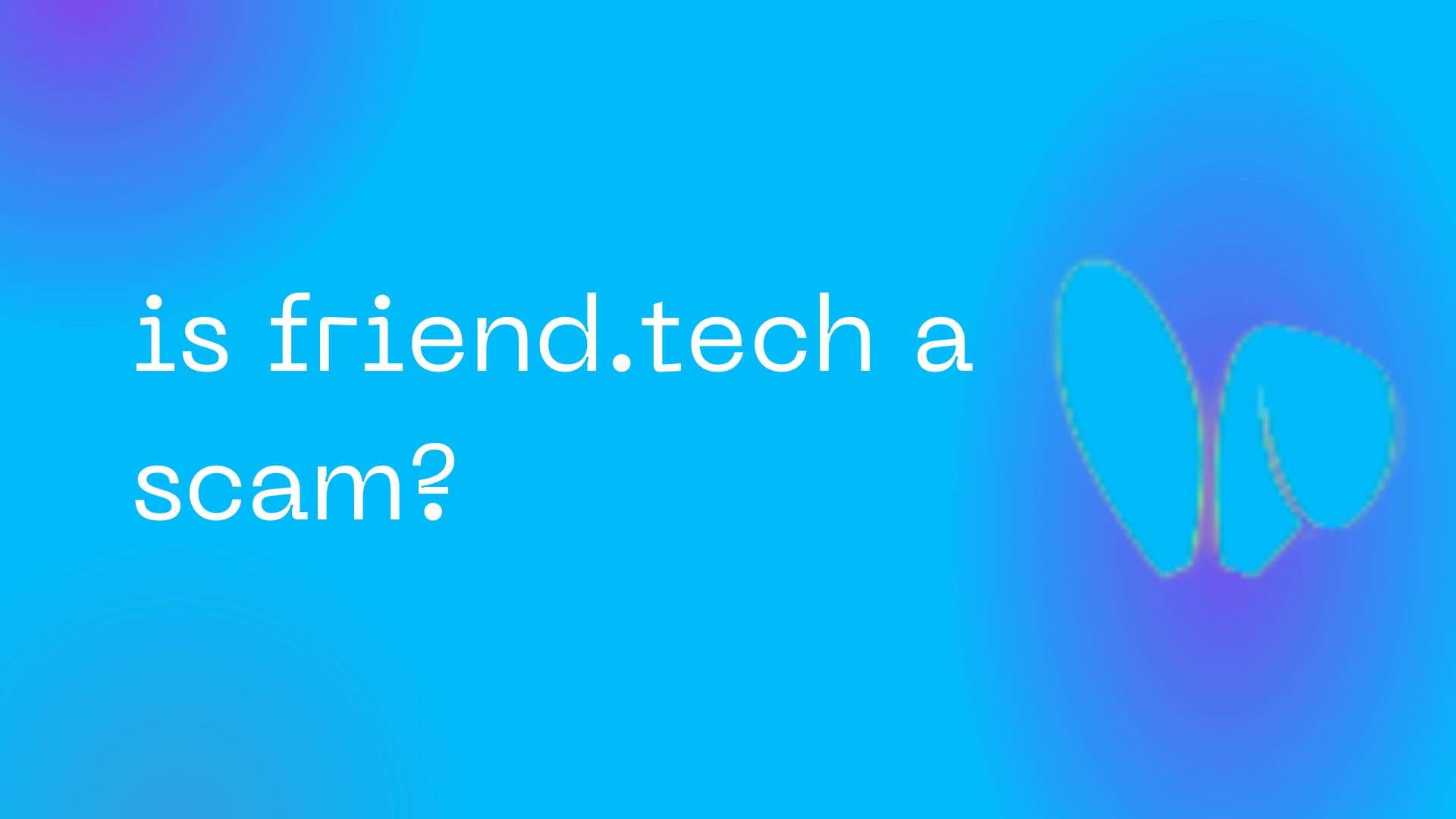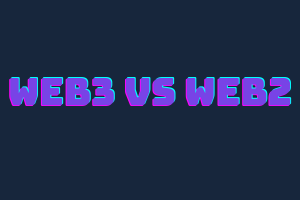Friend.tech is the latest decentralized social media app taking crypto by storm. In just a matter of weeks, the previously unheard-of platform has gone viral among cryptocurrency enthusiasts. Some are hailing it as a game-changing innovation for social apps and crypto adoption. Others remain skeptical, warning users not to get caught up in the hype.
So what exactly is Friend.tech? Is it poised to disrupt the social media landscape and build Web3 community engagement? Or is it yet another overhyped crypto project with no real substance or longevity? Let’s take a deeper look at what Friend.tech offers, how it works, the opportunities and risks it presents, and ultimately whether claims of it being a scam hold any truth.
What is Friend.tech?
At its core, Friend.tech is a social platform that allows users to tokenize their friends, followers and broader social network. It brands itself as “the marketplace for your friends.” Users can purchase “shares” in other individuals on the platform, and owning these shares provides certain benefits:
– Access to private, exclusive chat groups with that person
– Potential for profit through price appreciation if that user becomes more popular
– Voting rights for decisions that a person makes regarding their community
For example, you could buy shares in a popular crypto influencer, which gives you access to their private chat on the app. The more demand there is for that influencer, the more scarce their shares become and the higher the price goes.
Friend.tech essentially applies public market principles like shares, price discovery, and volatility to people’s social networks. The more shares outstanding for a user, the more expensive each share gets. Users earn money when others buy their shares at a premium.
Friend.tech runs on Coinbase’s new layer-2 network, Base. Users link their Ethereum wallets to their Friend.tech accounts in order to purchase and trade shares. All transactions happen through the Ethereum blockchain but are settled on Base as a layer-2 solution in order to improve speed and reduce gas costs.
The app itself launched in closed beta on August 11, 2022. Data from various sources shows that over 100,000 users have joined Friend.tech in the few short weeks since. Crypto influencers, artists, musicians, and more have set up profiles and begun issuing shares. Some report earning thousands in ETH in a single day from users buying their shares.
For example, crypto gaming personality Faraz shared on social media that he earned 14 ETH (around $22,000 at the time of writing) in one night from Friend.tech activity. So there are certainly major financial incentives at play to drive early adoption.
In terms of fees, Friend.tech collects 5% on all transactions. The remaining spread goes to the share issuer. There are also options to tip other users through the app.
How does buying shares on Friend.tech work?
The process of buying and selling shares on Friend.tech closely mirrors stock market mechanics:
1. Browse shares – Users can search and explore different profiles that have shares available. Each profile displays details like price history, number of shareholders, minimum share price, and more.
2. Place a buy order – If interested in a profile, you place a buy order for the number of shares desired at the current market price. Orders are executed based on supply and demand.
3. Obtain shares – Once your order executes, you pay the amount in ETH from your linked wallet and receive the shares. These are ERC-20 tokens.
4. Access benefits – As a shareholder, you now have access to the profile’s private group chat and member benefits.
5. Sell shares – If you want to exit your position, you can list your shares for sale at any point. When a buy order comes in, you get paid in ETH and relinquish access.
Again, the more shares outstanding, the higher the price adjusts based on supply and demand. Users essentially speculate on personalities and influencers they think will become more popular. Profit comes from buying shares early and selling them at a higher market price later on.
Origins of Friend.tech
Friend.tech was created by an anonymous group that many speculate is linked to an individual named Racer. Racer is connected to other crypto social apps like TweetDAO and Stealcam through his online persona 0xRacerAlt.
0xRacerAlt partnered with Coinbase Ventures and Paradigm earlier in 2022 to build “tools for new social interactions” according to Friend.tech’s official Twitter account. The pseudonymous Racer is considered a pioneer in crypto social platforms. With Friend.tech, he took the core concepts in TweetDAO of issuing tokenized tweets and applied them to entire user profiles.
Friend.tech represents a pivot towards mobile after Racer’s previous platforms were mainly browser-based. The app has received funding from the blockchain venture arms of Coinbase and Paradigm. However, the core team remains unidentified at this time.
Why is there so much hype?
Friend.tech has witnessed meteoric growth since its beta launch in mid-August. Various data sources point to over 100,000 sign-ups within the first week. In its first 24 hours, Friend.tech generated over $1 million in transaction volume fees. After 10 days, total trading volume exceeded $25 million.
The growth has sparked a frenzy on crypto social media, with personalities boasting about their earnings on the app and followers begging for invite codes to join. This hype cycle closely mirrors other Web3 trends like CryptoPunks and Meebits. Scarcities drive speculation. The more interest grows in the platform, the more lucrative early shares become.
Here are some of the core factors driving hype around Friend.tech right now:
– Exclusivity – The app currently operates an invite-only system. New users need a referral code. This creates perceived scarcity and fuels hype.
– Profit potential – With some users reporting five-figure earnings in ETH in short periods, profit incentive is high. This attracts speculation.
– Status symbol – Access to certain personalities comes with social clout. Users want to flex their connections.
– Gamification – The trading and speculation around share prices add a gamified, exciting element.
– Smooth UX – Friend.tech offers the smoothest user experience yet for transacting with crypto versus competitors. This makes the barriers to entry very low.
The combination of exclusivity, profit potential, social status, gamification and accessibility is proving to be a potent recipe for generating hype. Whether this hype is justified or not remains to be seen. But it is driving rapid adoption in the short-term.
Which big names are using Friend.tech?
Aside from scores of crypto influencers rushing to Friend.tech to issue shares, a number of mainstream celebrities and artists have also joined the platform despite not being deeply involved in the crypto space previously.
Some examples include:
– Faze Banks – Co-owner of esports organization FaZe Clan
– The Kid LAROI – Popular Australian rapper
– Pussy Riot – Anti-Putin Russian punk rock group
The eclectic mix of household names, crypto elites, and controversial figures illustrates the widespread appeal Friend.tech holds so far. The app gives public figures a new monetization stream while letting fans feel more connected for a price.
Venture capitalist Marc Andreessen has been one of the most vocal proponents of Friend.tech, claiming it is one of the first Web3 innovations with a shot at mainstream adoption.
Other investors like Garry Tan have said while risky, the new social app represents a paradigm shift in how creators can monetize through ownership. Tan invested in the presale for Faze Banks shares for example.
So both crypto native users and more mainstream personalities seem enthralled by the profit potential and community ownership concepts Friend.tech introduces.
Risks and Criticisms of Friend.tech
Despite meteoric growth, breakout usage among even non-crypto natives and vocal supporters, Friend.tech also has its fair share of skeptics. As the new platform disrupts the social landscape, criticism has emerged highlighting its potential weak points.
Some of the common concerns raised around Friend.tech so far include:
– Lack of a privacy policy – Users must connect their wallets but the app does not yet have a formal privacy policy. This raises concerns about data protection.
– Price sustainability – Prices for shares increase exponentially as more are issued. Some fear this results in prohibitive pricing.
– Regulatory gray areas – The prospect of profiting from shares muddies regulatory waters. It may violate securities laws.
– Unsustainable rewards – Early adopters benefit most but rewards may dwindle over time.
– Founder controversy – Friend.tech founders have links to failed NFT projects like Kosetto which collapsed unexpectedly.
– Pump and dump risks – Critics warn early users may dump shares once prices peak, hurting late adopters.
– Community fragmentation – As shares become expensive, smaller splinter groups form. This could dilute activity.
– Gamification harms – Turning social relationships into monetary value may corrupt motivations and behavior.
– Limited exclusivity – Users can still interact publicly outside the app. Private chat access has marginal value to some.
– Potentially fleeting – Some call Friend.tech a fad no different from predecessors like Peepeth and BitClout that faded fast.
While supporters believe Friend.tech marks a paradigm shift in social and crypto, critics contend it is an overhyped scam built on manufactured FOMO and misleading profit potential. Reality is likely somewhere in the middle. Exciting innovations rarely come without growing pains and adjustments.
Precedents like BitClout and Peepeth show social tokens can struggle to hold value long-term. And the anonymous team behind Friend.tech already abandoned one project unexpectedly. So there are legitimate concerns about relying on Friend.tech for sustainable returns.
That said, the novel concepts around fractionalized ownership and monetization may evolve into new creator economy models down the line. Friend.tech cannot fairly be labeled an outright scam since it genuinely seems to be experimenting with new modes of community participation and membership.
Still, users should exercise caution before buying into the hype or extravagant claims around Friend.tech shared on crypto social media. As with any new project, there are always risks. Social apps tend to follow unpredictable growth trajectories as network effects stall or strengthen over time.
Does Friend.tech have a token?
Initially after launching, Friend.tech only had one main token – its “shares” that represent fractional ownership in user profiles. However, likely due to regulatory concerns over marketing speculative investment assets, Friend.tech renamed “shares” to “Keys” at the end of August 2022.
Keys allow users to access private chat groups and content as shareholders. The company has not yet issued any other tokens, but plans to distribute an internal points system over its beta testing period and integrate a governance token eventually.
Renaming shares to keys was probably wise to avoid legal issues. While not fully confirmed, the move may have also helped Friend.tech avoid declining further investment from Paradigm and scrutiny from agencies like the SEC. Regulatory frameworks have not yet caught up to many of the novel concepts decentralized apps introduce.
By framing keys as simply unlocking access versus an investment asset, Friend.tech provides more legal cover as it builds out its metaverse. Additional tokens are sure to come as the project matures.
Is Friend.tech here to stay?
The million-dollar question around any viral decentralized app is always whether it marks a permanent shift or a short-lived fad. Skeptics enjoy writing Friend.tech off as a Ponzi scheme and passing hype cycle like BitClout that will fade into obscurity within months.
But much like the frenzy around Bitcoin and Ethereum in their early days, niche apps gaining traction with even small niche groups can sometimes point to entirely new market directions. Dismissing innovations outright simply because they catalyze speculation is cynical and short-sighted.
Here are several reasons why Friend.tech may have more staying power and longevity than predecessors like BitClout:
– Mainstream attention – Friend.tech is attracting interest from celebrities with zero crypto experience. This helps introduce Web3 concepts to vastly larger audiences.
– Mobile-first – By launching as a mobile app rather than a janky web interface, Friend.tech removes technical barriers better and connects to users’ daily habits.
– Built for crypto – Using Coinbase’s Base Layer 2 network means fast, cheap transactions between wallets and the app. This matches much-needed improvements in blockchain usability.
– True gamification – The free market dynamics built into buying/trading shares create an inherently gamified, engaging user experience that fuels retention.
– Some VC backing – Support from Paradigm and Coinbase Ventures means the project has a significant runway, unlike earlier bootstrapped experiments.
– Anonymity – The anonymous team means fewer legal and publicity risks if the project were to pivot or rebrand as needed.
There are never guarantees for new apps and companies, especially in the rapidly evolving Web3 space. But Friend.tech does seem to demonstrate enough new ideas and grassroots enthusiasm to potentially carve out a more permanent position in the social media landscape.
Much comes down to network effects and sustained content creation. If personalities continue posting exclusive content to the app and users feel invested in the communities they join, Friend.tech usage could persist well beyond the initial hype phase. On the other hand, if content becomes sparse or creators lose interest, activity will fade quickly.
Ultimately the trajectory depends on the team’s ability to keep innovating features that users want and true communities forming around micro-networks on the platform. This remains a tall order, but the initial adoption signals are promising for Friend.tech compared to predecessors.
Is Friend.tech a scam? The verdict
Based on examining its features, user experience, backers, adoption, and criticisms, Friend.tech does not appear to be an outright scam in the common sense meaning. The app genuinely seems to offer new concepts around social tokenization and community ownership not seen before. Early users are already profiting in some documented cases.
However, that does not mean Friend.tech is guaranteed to be a sound long-term investment or permanent fixture in the social media world either. Like any speculative asset, users who buy in based solely on hype risk losing money if interest quickly fades. And the anonymous team inspires some reasonable doubt.
As with most crypto projects, the truth around Friend.tech likely lies somewhere in a gray area between years-long disruptive innovation and short-lived cash grab. It is neither a guaranteed scam nor necessarily a new blockchain paradigm.
New social platforms carry inherent network effects risks. Just ask the founders of Google Plus or Ello. Wide early adoption does not always translate to lasting stickiness. But apps also require room to stumble and learn while building communities, as Facebook did in its early days.
So users should approach Friend.tech with balanced optimism and caution. The concepts are fresh and carry potential to evolve social dynamics online. But skepticism will help avoid buying into unjustified hype.
If users look past profit hype and instead focus on building connections and participating creatively rather than purely speculating, Friend.tech may nurture rewarding communities and redefine how digital citizenship works. But keeping expectations measured is wise.
Ultimately only time will tell if Friend.tech marks a permanent shift or just another passing Web3 fad. But for now, profits flowed to early adopters, activity remains buzzing and the platform keeps innovating. Friend.tech appears here to stay for the foreseeable future, even if challenges inevitably emerge.
Read more blogs related to web3 here



